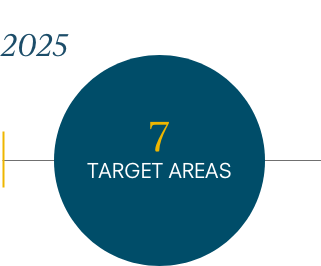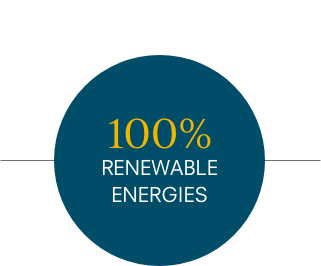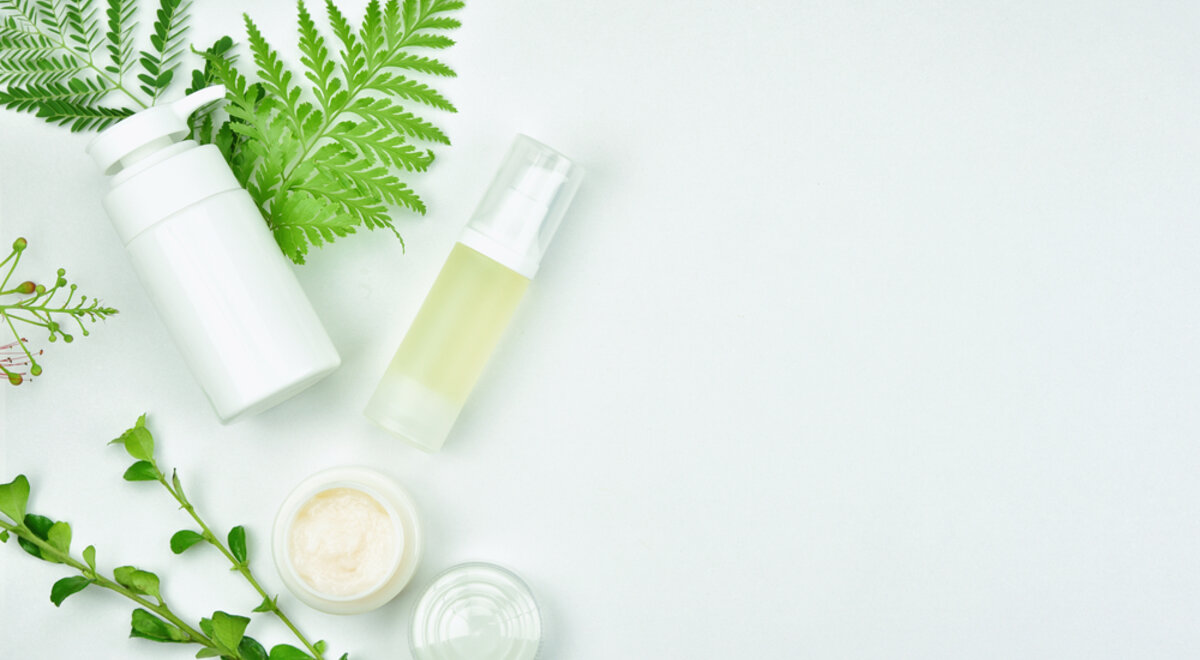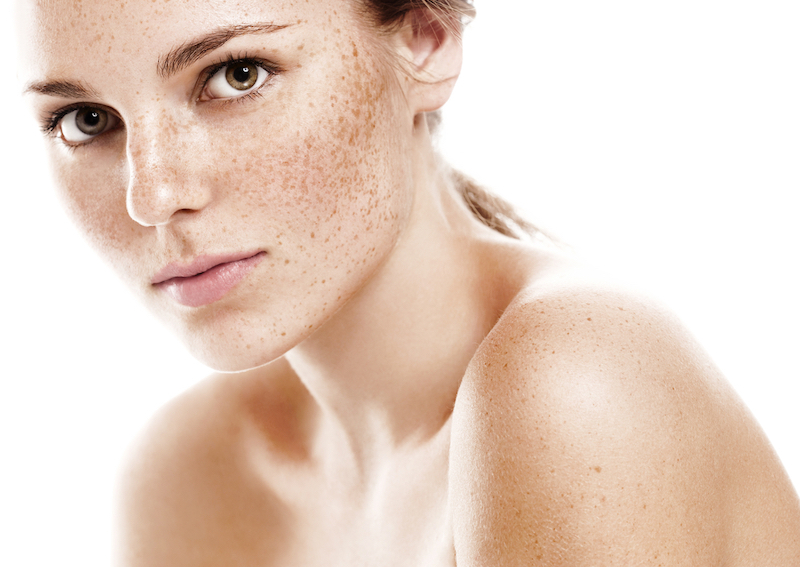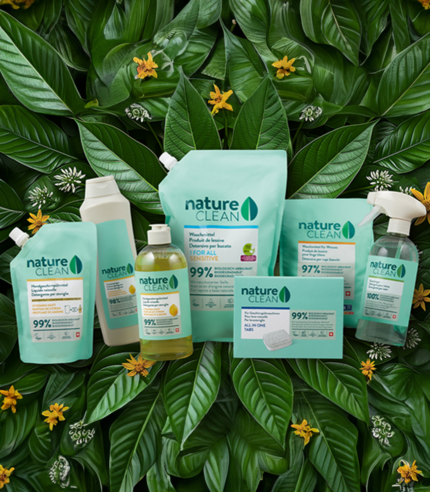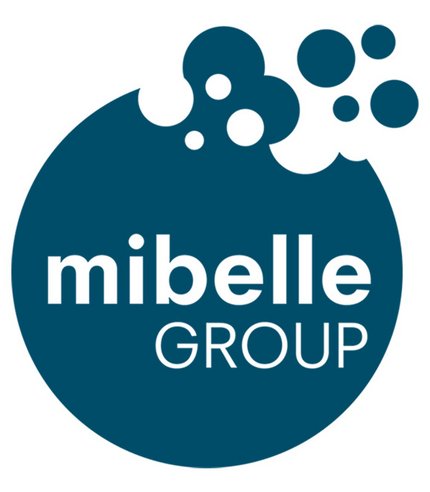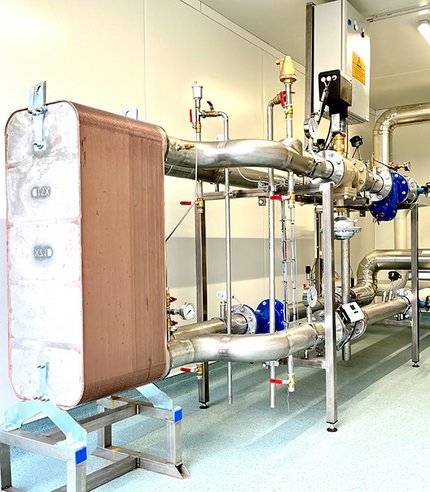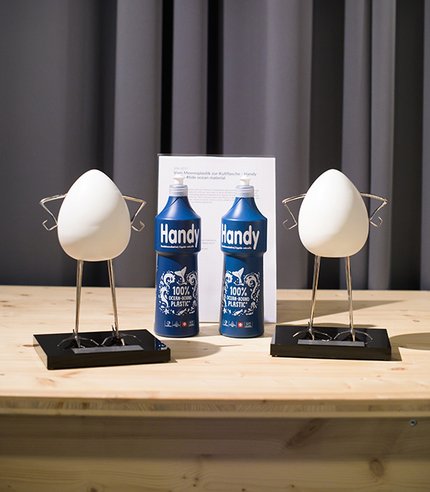Millennials are powerful drivers in the area of sustainability and the clean beauty movement. They challenge companies and rigorously demand that they act in a sustainable way. Cosmetics manufacturers have to react or risk losing customers, loyalty and credibility. But what exactly is clean beauty and what does it have to do with sustainability and responsible consumption?
Clean beauty – no clear definition
Once a niche trend, clean beauty is no longer just a lifestyle. It is on track to becoming an essential and urgently needed standard which companies should strive for. As there is no official definition of the term, this creates room for interpretation.
In most cases, clean beauty is equated with the absence of critical ingredients – critical either in terms of their effect on humans or where they are sourced from.
Cosmetics therefore need to be “clean”. Ingredients suspected of endangering health are banned wherever possible. The stripped down formulas contain only as many ingredients as necessary, derived from sources that are as natural and sustainable as possible.
But clean beauty can do so much more. Sustainability is as complex as it is far-reaching. That’s why we’re going one step further. Above all, clean beauty should do one thing: Create transparency. And take responsibility – for the entire value chain.
Every step in the product life cycle – beginning from the source of the ingredients, i.e. cultivation and the way in which the raw materials are extracted, to production methods and the content and structure of the products right through to distribution, transparency in retail and disposal – is enormously important. This naturally includes ethical, moral and socially acceptable aspects for society, businesses and the environment.
Clean beauty products should also be designed according to the zero waste principle, be free from any toxic ingredients and also (highly) effective. In other words, really and truly clean.
Demanded by consumers as essential
And that’s where clean beauty comes in. Ecological awareness has grown. Changes in consumer and purchasing behaviour and people’s values have a direct influence on consumer attitudes towards sustainability.
Millennials are the generation with the strongest awareness for sustainability issues. They are willing to spend more money on products and services that are considered sustainable or produced or provided by socially and environmentally responsible companies. Having also grown up in a world of instability, however, millennials also have a general sense of mistrust. Only a small number of young people believe that companies actually behave ethically.
Millennials want companies whose decisions bring about positive changes – for the planet, for humanity and for themselves.
It’s not only millennials who adopt this attitude. More and more consumers increasingly assess products and services in terms of moral aspects. They have a sense of collective responsibility, expect companies to act sustainably and rigorously demand products that are safe for humans and the environment. An awareness of mindful and ethical consumption is becoming increasingly importance.
Devastating impacts on humans and the environment
It’s not only harmful ingredients such as silicones, parabens, acetone, triclosan and aluminium salts that are being successively banned from care and make-up products. Packaging is also being increasingly scrutinised. The effects of pots, dispensers, bottles and other cosmetics containers when used improperly are becoming abundantly clear. The figures make for sobering reading:
Every year, the global cosmetics industry alone produces 120 billion items of packaging, of which only a small percentage is recyclable*. Unfortunately the majority of our cosmetics packaging is made of plastic. And this is turning into a serious problem for our environment. Just think of the horrendous images of marine animals dying in agony, their stomachs filled with plastic waste. (*Source: Zero Waste Week)
Every year, around nine million tonnes of waste end up in our oceans. 60-90% of this is plastic waste. If we continue this way, there will be three times more plastic than fish in the sea by the year 2050. In large areas of our oceans there is already six times more plastic than plankton.
The average use time of a plastic bag in Germany is 25 minutes, but it takes 10 to 20 years until it completely breaks down in the sea and then floats around in the form of microplastic or sinks to the seabed. The figures for a PET bottle are even more extreme: It takes a staggering 450 years to degrade. (Sources: Statista, plastic waste statistics 2018)
It is estimated that more than 800 species of animals living in the sea or in coastal areas are affected by plastic waste. This affects almost half of marine mammals and seabird species*. Alongside climate change and intensive land use, plastic waste is developing into one of our biggest environmental problems, endangering not only the biodiversity of our marine animals, but also our own health. (*Source: WWF)
According to the latest science research, it has not been confirmed that plastic poses a health risk for humans. Even the smallest particles are apparently not absorbed by the skin. So why is plastic still harmful to our health?
Microplastics contained in cosmetic formulas, defined as anything smaller than 5 millimetres, get into our rivers and oceans via waste water treatment plants. Due to their size, they cannot be filtered out. The small particles are often mistaken for food by marine animals. If the animals do not die from this in their thousands, they will sooner or later end up on our plates. For example, if we eat a portion of mussels, we also consume around 90 microplastic particles. How this affects our body is not yet known – but it certainly doesn’t leave us with a good feeling.
An entire industry needs to change its thinking
The bottom line is undeniable. Society, and in particular the beauty industry, can no longer look the other way – out of conviction, for the sake of our environment and also because of demand.
Clean beauty in terms of ingredients is already well established and great efforts are being made. This is reflected by the many brands and concepts based on the “less is more” concept and in the sustainability and natural cosmetics sector. There is also a lot going on in the area of social engagement and transparency.
Experts agree that the greatest challenge for the entire industry is packaging. All too often, plastic and acrylic end up in landfills – or even worse in nature! Ecological packaging solutions are unfortunately not yet very attractive in terms of production, financially or appearance. And beautiful things are mostly not (yet) sustainable. Finding satisfactory alternatives is difficult. Sustainable packaging still has a long way to go.
In view of all this, cosmetics manufacturers need to react and the packaging industry needs to completely change its thinking. It is already clear that regulatory requirements will soon set the direction for the future. The EU plans to ban single-use plastics from 2021. Consumers are increasingly concerned about the environmental aspect of their consumption. Social and ecological sustainability, clean and transparent are no longer niche issues; the possibility of morally and ethically correct consumption is expressly demanded by consumers.
As a consequence – and this is what’s new – all mass market manufacturers have to react. In line with the philosophy of the zero waste pioneer Bea Johnson and her 5R principle (refuse, reduce, reuse, recycle, rot (compost)), aspects such as reducing and recycling packaging, extending product lifecycles and sustainable packaging alternatives will be crucial to the success and continuing legitimacy of cosmetics manufacturers in the coming years.
The first serious efforts by multinational companies are now in progress. Cosmetics giants such as Unilever, L’Oréal and Henkel have set themselves ambitious targets for reducing plastic packaging and increasing the recycling rate, thus following in the steps of the many praiseworthy small companies that have committed themselves out of conviction to a concept of total sustainability in cosmetics. And here’s the reason why:
Beyond complying with all the regulations, there’s one thing that clean cosmetics should be above all else: Responsible.


